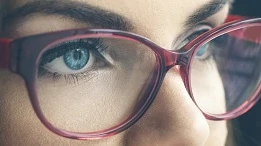Answer the Question: Do I Qualify for LASIK?
Many people are blessed with perfect 20/20 vision—they have no worries and no hassle with seeing life in this world in all its clear, crisp splendor. However, for the rest of us struggling with the daily issues related to corrective lenses—and there’s a bunch of us (we’re a majority on this planet)—we think about our vision. Every. Single. Day. And, at some point, most of us ask ourselves the question: do I qualify for LASIK?
So it isn’t surprising that LASIK is so popular.

If you’ve considered vision correction surgery like LASIK, you’ve probably heard about how fantastic life is with new, better vision. Ask the majority of people who’ve had it; now they experience life much like people born with perfect vision. They are just more grateful for good vision, knowing what life is like not being able to see well.
For those people who are good candidates, LASIK can be truly life-changing. But with every surgery, particularly one that is elective, you really need to think about it, find out if you qualify for LASIK, and decide if it is right for you. No surgery is 100 percent perfect—LASIK is really close with a higher than 96 percent patient satisfaction rate—but there is some risk, and other considerations, such as these:
Your eyes will continue to change as you age and so will your vision
Meaning you may still need glasses at some point in the future. So going into the LASIK procedure thinking it is a permanent, one-time fix, simply isn’t realistic.
LASIK is really good—spectacular for most—but it isn’t magic
As with any surgery, there is a recovery process. Most people see better immediately after LASIK, but, particularly in the first few weeks, people can experience dry eyes, glare, and halos. These typically resolve as part of the healing process, but some people may need additional treatment.
Not everyone is a good candidate for LASIK
If your corneas are too thin or irregular, if you have eye diseases like glaucoma or autoimmune diseases like lupus or rheumatoid arthritis, you may not be a candidate for LASIK. There are also medications, like corticosteroids, that can impair the healing process, making vision correction procedures a less-than-ideal choice for you.
Understanding the limits of LASIK will help you make an informed decision about your vision correction choices. Bottom line? If you are curious about LASIK, finding and talking candidly with a highly qualified surgeon is the best way to find out if you qualify for LASIK and if it is right for you and your vision. A few good resources to find top-notch refractive surgeons in your area include All About Vision.




